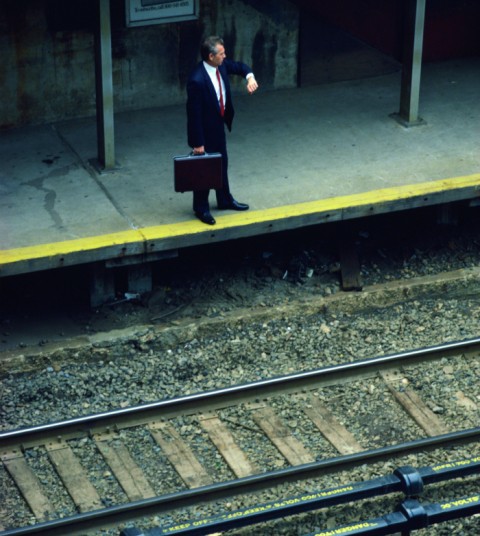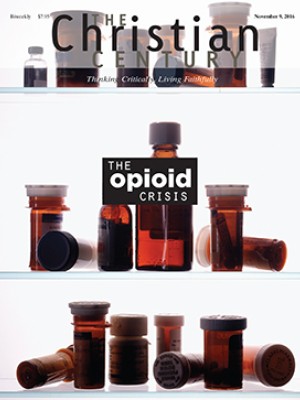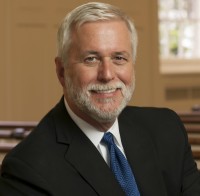What waiting reveals about our true selves
An insight I gleaned from Ernest Hemingway rings true for the mainline church today.

We hate waiting. We get a lot of practice, but that doesn’t make us good at it. We wait in traffic, in grocery store lines, at airports, at the Department of Motor Vehicles, and in doctors’ waiting rooms.
Sometimes the waiting is for important news. Will the medical tests reveal a terrible disease? Will we get the job for which we interviewed, or will it go to someone else? Will we ever find intimacy? Will our child grow up to be a responsible adult?
For those who worship, some of the hardest waiting is upon God. There are so many promises in the Bible, and at least one of them has captured our hearts. “Call unto me and I will answer you and show you great and mighty things you do not know.” “The one who began a good work in you will bring it to completion.” “Go to a land that I will show you, and I will make you a blessing.”
Read our latest issue or browse back issues.
This waiting places the credibility of God’s promises and our faith in them at risk. But what is faith without risk?
Ernest Hemingway was injured in World War I while working as an ambulance driver. Doctors pulled 237 pieces of shrapnel out of his body, and he spent six months in a hospital ward recovering. He was surrounded by other patients recovering from their wounds and became fascinated by how differently they waited through the seemingly endless days of recovery. Some distracted themselves with small entertainments, others cried out in lament, and still others pondered the depths of their lives.
It may have been during this time that he figured out plotlines that depicted a lead character waiting for combat to begin, or waiting for a bull to start charging, or waiting for rescue at sea.
Hemingway’s thesis is that the waiting does not break us; it reveals us.
This same insight is found in the Bible over and over again. Abraham and Sarah spent 25 years waiting for the child God promised. Moses spent 40 years in the desert waiting for a call from God, and another 40 years in the same desert wandering around until God brought the people to the Promised Land. David had to wait a long time as a fugitive before he could become king. The disciples followed Jesus around for years before they knew who he was and what he was about. Even after his resurrection and ascension they were told to wait for the Holy Spirit before they did anything. The rest of the New Testament depicts all of the creation waiting for the full coming of Christ’s kingdom. For that we still wait.
So what is revealed in all of this waiting? The biblical story, which is really our stories, illustrates several revelations.
One of them is that waiting makes us anxious, and anxiety makes us come up with plans of our own for salvation that are typically not so great. Most decisions made out of fear only make things worse. This is an important reminder for mainline Protestant denominations that realize they’re in numerical decline. Maybe God has a new call for our church that has nothing to do with being mainline. We’ll have to wait and see.
Another insight is that we’re not the only ones in the waiting room of the Great Physician. Many people of various races and national groups have been in the room far longer than we. All of us wait for God’s promises of the embrace of justice and peace, but if we start a conversation with someone else in the waiting room, we may learn that we’re not the most desperate patient waiting for healing.
Another thing that waiting reveals is that we are creatures and not Creators. If we were gods, we would never have to wait for anyone to make our dreams to come true. But life is created by God. When we lose the humility of this truth we inflict the most harm on those around us. They pay the price as we create havoc trying to self-construct our lives.
Perhaps the most important thing waiting reveals is that we can always choose how we’ll respond to the humility it brings. Those with souls filled with gravitas use the waiting to draw closer to the God whose ways are not our ways, and whose timing often seems to have a preference for arriving after the time for saving the day has come and gone.
Is this not one of the proclamations of Easter? The women who stayed near the dead and buried Jesus demonstrated how best to wait. We don’t run away. After the waiting has become hopeless, we stay with our grief and our devotion to Jesus Christ. Only then are we well positioned to receive the glorious surprises of a risen Savior who is not done.
The biblical drama seems to indicate that even God is waiting to see what will be revealed in the soul of the church that waits. Will we live by faith, or come up with anxious plans that can only create more hurt?
A version of this article appears in the November 9 print edition under the title “What waiting reveals.”






